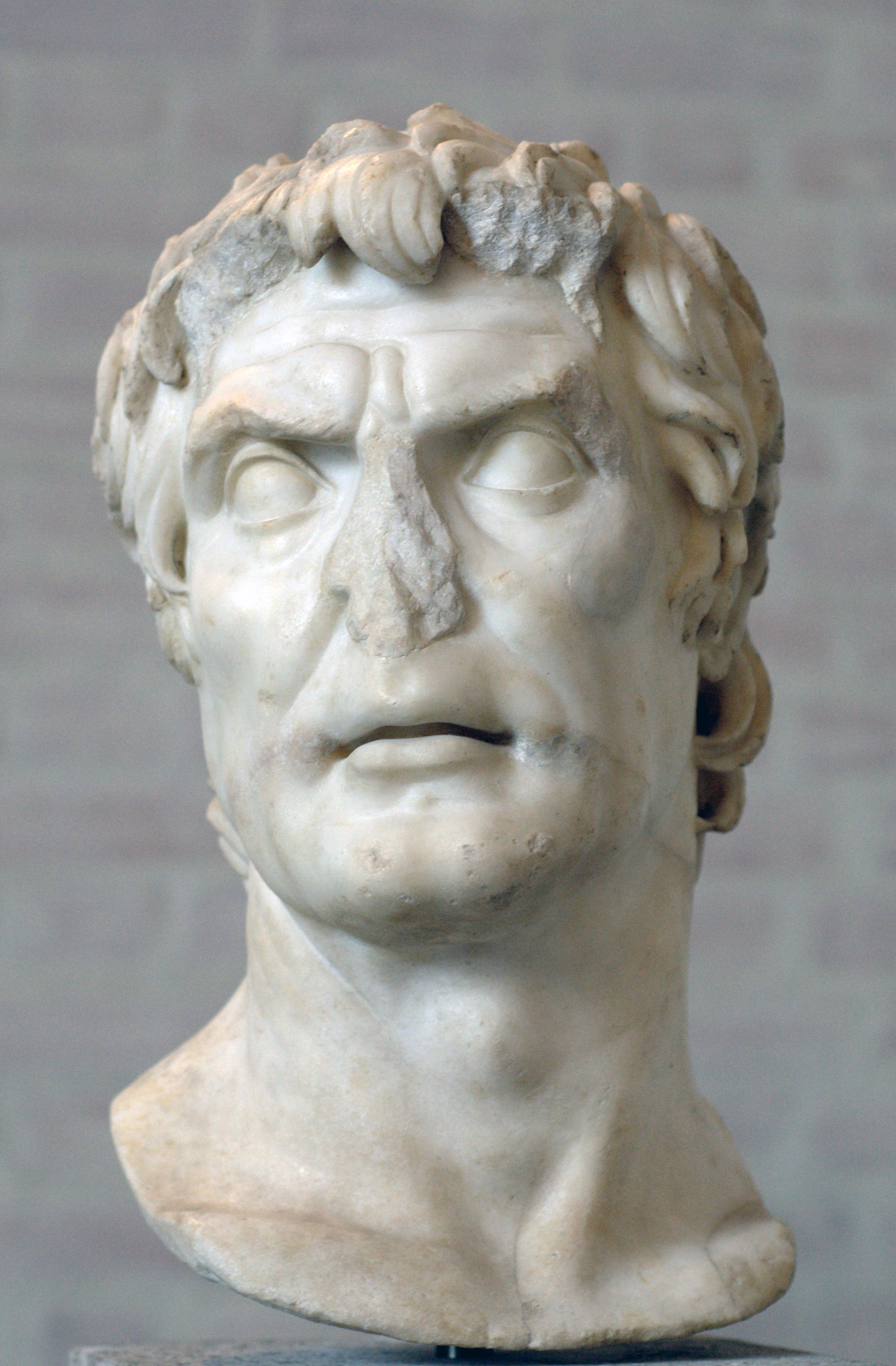Lucius Cornelius Sulla Felix , known commonly as Sulla, was a Roman general and statesman. He had the distinction of holding the office of consul twice, as well as reviving the dictatorship. Sulla was a skillful general, achieving numerous successes in wars against different opponents, both foreign and Roman. He was awarded a grass crown, the most prestigious Roman military honor, during the Social War.
Sulla's dictatorship came during a high point in the struggle between optimates and populares, the former seeking to maintain the Senate's oligarchy, and the latter espousing populism.
In a dispute over the eastern army command Sulla marched on Rome in an unprecedented act and defeated Marius in battle. In 81 BC, after his second march on Rome, he revived the office of dictator, which had been inactive since the Second Punic War over a century before, and used his powers to enact a series of reforms to the Roman Constitution, meant to restore the primacy of the Senate and limit the power of the tribunes. Sulla's ascension was also marked by political purges in proscriptions. After seeking election to and holding a second consulship, he retired to private life and died shortly after.
Sulla's decision to seize power – ironically enabled by his rival's military reforms that bound the army's loyalty with the general rather than to Rome – permanently destabilized the Roman power structure. Later leaders like Julius Caesar would follow his precedent in attaining political power through force.
✵
138 BC – 78 BC
